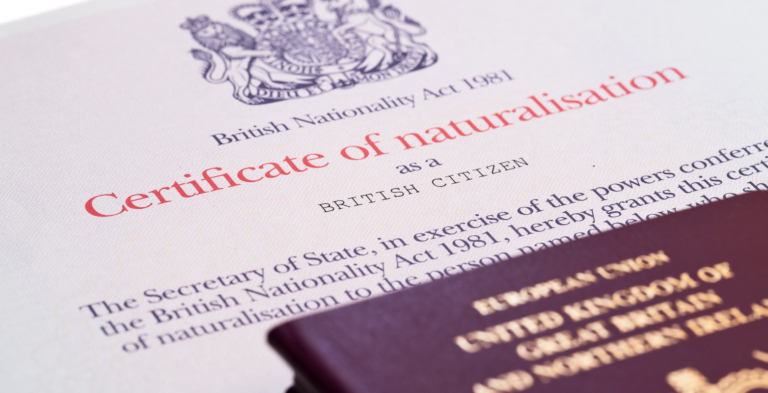Shareholders agreement

What is a Shareholders agreement?
The easiest way to understand what is a Shareholders agreement is to view it as a contract between a business and its investors. This document scrupulously sets the internal rules of the company. It covers a wide range of business matters starting from the evaluation of shares and ending with dispute resolution rules.
Unlike some other legal documents, this agreement is not obligatory. Nevertheless, there are numerous businesses that have these contracts active. The document covers both the rights and obligations of the participants, although it is mainly designed to protect the shareholders and ensure they are treated fairly.
Why do you need Shareholders agreement?
There are multiple reasons why it might be very important to have a Shareholding agreement in the company. First of all, it creates a specific guideline for most operational cases, making the interactions with the stockholders easier. It clarifies some aspects of the business that could have been unclear otherwise and establishes the procedure for resolving all sorts of disputes between the stockholders and the company.
The document enables the business to treat the stockholders fairly and guarantees a stable workflow of the whole company in relation to its stocks. Moreover, private companies have guidelines for the stockholder meetings included in these agreements. From the business perspective, it is also needed to limit some actions of shareholders that could have been possible without such a document.
What should be included in a Shareholders agreement?
The agreements are drafted individually by each private company and include clauses that are relevant to their specific business. However, there are many standard terms that are included in the vast majority of these documents. Standard terms like the following may be added to a Shareholder agreement:
- list of reserved matters;
- conflict of interest provisions;
- dispute resolution provisions.
There are some other aspects included in the clauses of a Shareholder agreement. They describe the way the stocks are distributed among company members, but they also cover the voting procedures, the regulations related to dividends, transferring stocks, terms for issuing new stocks, and other rights of the shareholders. As it is a document that sets the whole framework of interactions between the shareholders and the company, it can be referenced in any possible disputes related to it.
List of reserved matters
Business choices that need a higher degree of approval are known as reserved matters. In private companies, shareholders have the voting power to make some decisions related to the course of the development of the business. Unlike day-to-day business decisions made by the board, these decisions are made by the stockholders.
Typically, the voting power of each individual stockholder depends on the amount of shares they hold and their type. The matters decided on such votings may be related to multiple aspects of the business. Below, there are several examples of such decisions.
Finance and business
Choosing a bank and auditor for the corporation, limiting the corporation to a certain industry or form of operations, forbidding the corporation from assisting individuals with financial needs.
Assets and capital
Limiting the corporation’s ability to make capital investments, disposing of the company’s assets, and providing security interests. Essentially, this includes all major decisions related to the assets of the business, including both its liquid assets and fixed assets.
Determine how stock can be sold or transferred
It is only natural for a stock to be transferable and sellable, and the rules regarding such interactions are also covered in the agreement. The main idea behind these clauses is to ensure the security of each stockholders’ assets. When the agreement is designed, there typically are some clauses related to selling stocks included. They limit some activities of the shareholders to ensure the security of the business. They are necessary for the following reasons:
- they grant the stockholders the ability to use their share of the company as they need;
- these clauses may block the entrance to the company for some outside investors. A common rule is that the stocks are offered to the existing stockholders before they are sold to other groups;
- there would be clauses related to the inheritance of stocks. For the cases in which the shareholder passes away, a procedure may be provided for the transfer of his assets to other people.
The rules regarding the inheritance of stocks are also important for the security of the company. It ensures there will be no unexpected parties entering the group. It is especially vital with relatively small businesses, in which only one stockholder could shake the entire company. In case the business is intended to be under the control of a family, these clauses will also prevent outsiders from taking the company over.
There is no specific standard here, and it is important to have an individual approach: for some businesses, the restrictions are absolutely necessary, while for others, it would be better to keep the stockholders as free to use their assets as possible. Making the agreement too restrictive could scare off potential investors who might not want to deal with such strict rules.
The distribution of dividends
Dividends are another vital part of almost any stock, so it is crucial to properly set the framework for them in the Shareholders agreement. The document should specify the period the dividends are paid out on: some companies do it annually, while the others pay them out every quarter. The stockholders care a lot about the dividends, which is why it is important to make it clear for them how the earnings of the company will be distributed.
Conflict of interest provisions
This category of clauses is vital for limiting the conflicts of interest that might occur when the stockholders leave the corporation. The main issue here is that the stockholders have access to private internal information regarding the business, which theoretically enables them to gain an unfair competitive advantage. This group of clauses is designed specifically to limit such an opportunity.
Most commonly, it includes two groups of guidelines. The first group of clauses prohibits the stockholders from joining other companies in the same industry or market segment for a predetermined period of time after they depart.
The second group of clauses relates to limiting the solicitation. Briefly speaking, they forbid the departed stockholders to recruit or promote recruitment to other companies in the same industry or segment for a specified period of time.
Dispute resolution provisions
As its name implies, this group of provisions is designed for various cases, in which some disputes might occur. There might be many entries in this group, but the most common are:
- Arbitration – the opportunity for the stockholders to attract mediators to make some decisions.
- First refusal privileges – the obligation for departing stockholders to offer their shares to other stockholders before offering them to third parties.
- Tag-along privileges – the opportunity for minority stockholders to participate in the same deal, in case the majority stockholders are selling their shares.
- The shotgun clause – ensures that a fair price is offered to the partners when selling shares.
What’s the difference between a Shareholder agreement and Articles of association?
Sometimes, these two documents get confused, and there is no surprise: they both are designed to establish internal rules of the company. Moreover, some of the clauses in these documents may cover the same aspects of the business, although the perspective is different.
The main conceptual difference between a Shareholders agreement in the UK and the Articles of Association is that the latter document sets the guidelines for the business itself, whereas the former mostly covers the interactions with its stockholders. Moreover, the Articles of Association are an obligatory document, whereas a Shareholder agreement is an optional one. Last but not least, the Articles of Association are publicly available for every company, whereas the guidelines for interactions with the stockholders are private.
Articles of Associations usually cover such aspects as the members’ liability, the board’s responsibilities, distribution of stocks and dividends, insurance policies, and establish the decision-making process.
How can we help?
The process of drafting and amending this document might be truly tedious. The good news is that the professionals at Sterling Law are always ready to provide the required help. Our Shareholders agreement lawyers have dozens of successful cases in their portfolios. They are ready to assist you at any stage of the process: whether it is necessary to review or amend an existing document or draft a new agreement from scratch.
For creating a shares agreement, we also have a specific form that you can find on this page. Fill it out to initiate the drafting process. Once finished, our solicitors will contact you to specify the details and share the progress. The consultations are available both online and in our office in London.






















